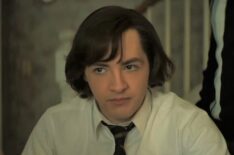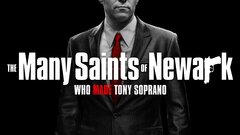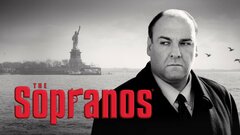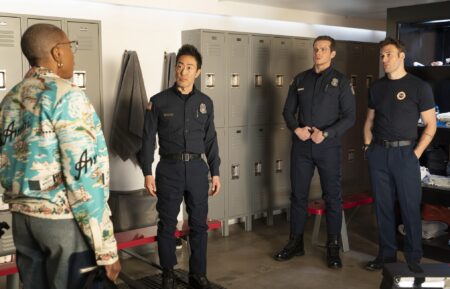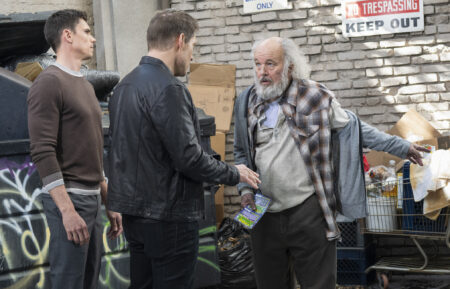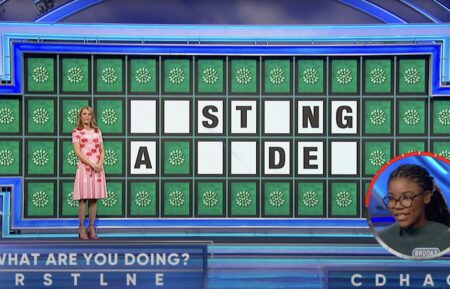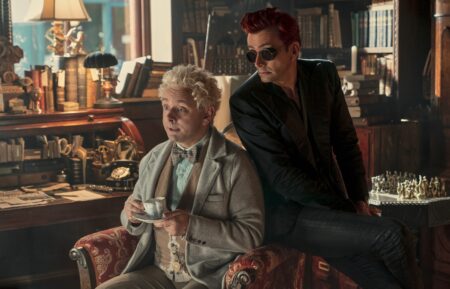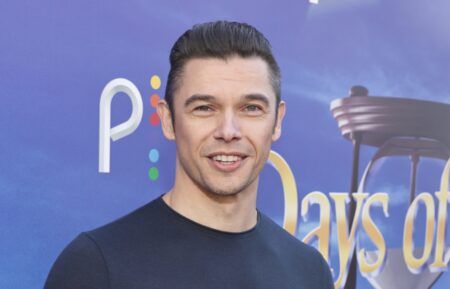‘The Many Saints of Newark’: Inside the ‘Sopranos’ Prequel With Star Alessandro Nivola
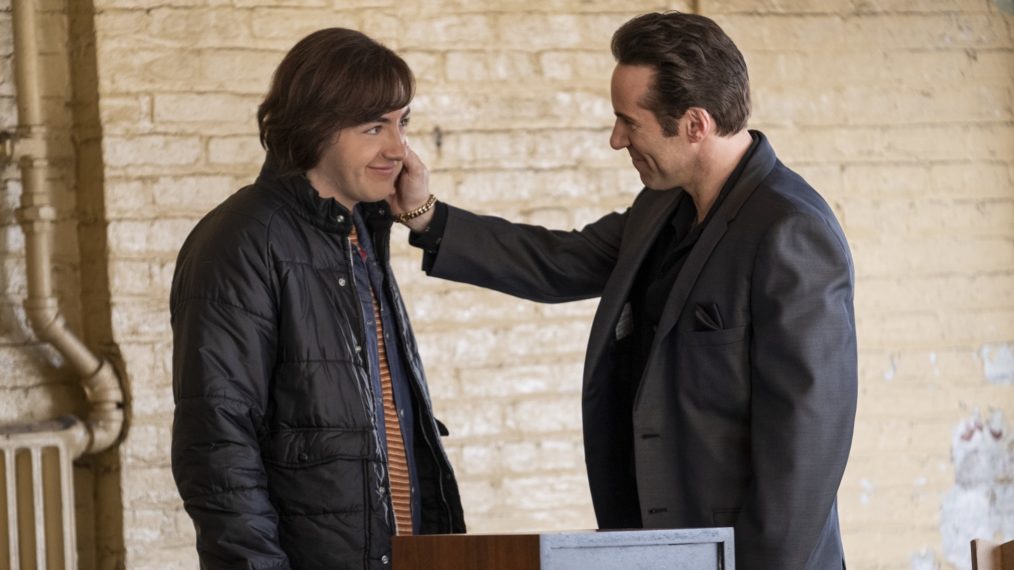
Preview
When The Sopranos ended in 2007, a great many fans screamed bloody murder. It wasn’t just because the pop culture sensation that TV Guide Magazine, in 2013, called the best television show ever, had closed up shop after six seasons; it was the way it ended. There was Tony Soprano (played by three-time Emmy winner James Gandolfini), sitting in a booth in Holsten’s ice cream shop and diner in Jersey with some unseen fate seemingly approaching in the darkness. Would we ever find out what happened to TV’s ultimate king-sized and analyzed mob boss?
We would not — Gandolfini’s 2013 death from a heart attack rendered any sequel impossible. But series creator David Chase has brought us the next best thing: The Many Saints of Newark, a beautifully cinematic prequel that lays out the origin story of Tony (played with fire and sensitivity by Gandolfini’s son, Michael) and introduces the mentor who shaped him. With younger versions of familiar characters and several ambitiously woven backstories (involving Greek tragedy–style family drama, jealousies, and murder as well as the Newark race riots of the late 1960s), it’s safe to say this most familiar family is back with a vengeance.
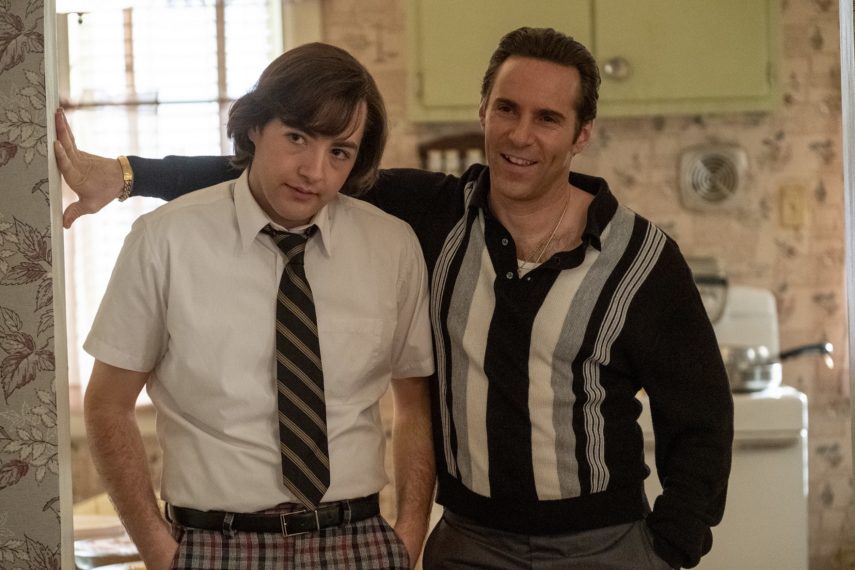
(Credit: Warner Bros. Entertainment Inc.)
Still, anyone thinking that Many Saints is a continuation of The Sopranos should, in a word, fuhgeddaboudit. The film’s real star is Dickie Moltisanti (played with tons of charisma and a closetful of sharkskin suits by Alessandro Nivola), who we find out early on is the father that Sopranos prime mover Christopher Moltisanti (Michael Imperioli) never knew. (The name Moltisanti is Italian for “many saints.”) Dickie takes Tony under his wing, trying to school the sometimes truant youngster to stay out of trouble. But Tony’s overriding impression is that Dickie — who runs a nightclub and various
criminal rackets — lives the alluring mob lifestyle, complete with ready cash and earned respect.
“The movie is really a character sketch of a man who tried to save Tony from a life of violence and suffering,” Nivola says. “He wants Tony to be a success and to ‘be good.’ ”
Dickie himself is no good example. “He’s tearing himself apart by his own inability to control his rage,” Nivola continues. “But Tony sees a guy who seems to have it all figured out. He doesn’t know what’s going on inside.”
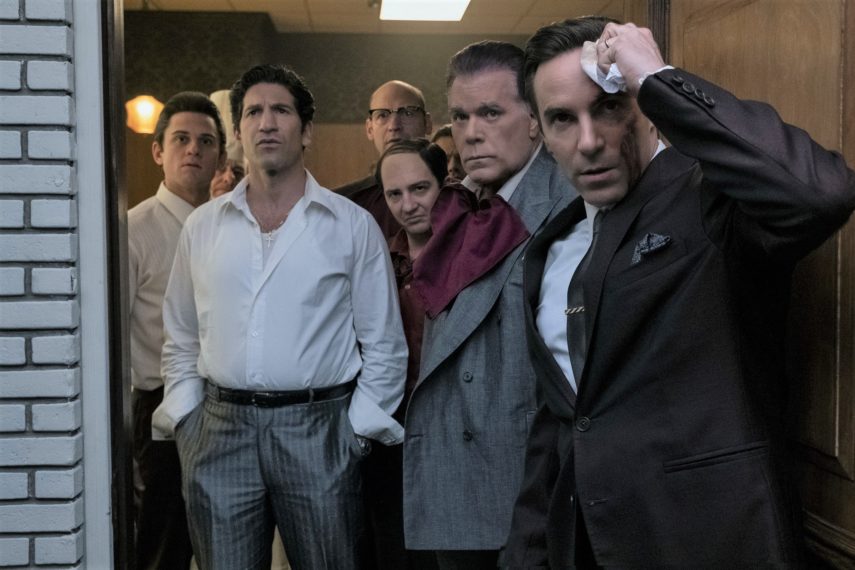
(Credit: Warner Bros. Entertainment Inc.)
We do, however, see what goes on inside Tony. He’s caught between Dickie and his own dissatisfied mother, Livia (an evocative Vera Farmiga), whose husband — Tony’s father — is quick-tempered Johnny Boy Soprano (Jon Bernthal). The demeaning Livia scoffs at her son’s high school guidance counselor, who indicates Tony is leadership smart; to Livia, her boy is anything but.
Fathers and Sons
While Michael Gandolfini faced the mountainous challenge of playing his father’s signature role, he was no doubt aided by the offscreen bond forged with Nivola. Before filming began, the actors spent months getting to know each other over lunches at the famed Brooklyn restaurant Junior’s. “By the time we started filming, we were very close, and I had a filial protective feeling toward him,” Nivola says.
The same can’t be said of his character Dickie’s relationships with the rest of his family and crew. His brutish father, “Hollywood” Dick Moltisanti (Ray Liotta, bringing a powerful yin and yang to the film), has returned from Italy with his dazzling young wife, Giuseppina (breakout newcomer Michela De Rossi), who instantly incites passion in her husband’s son. Other tensions arise courtesy of Johnny’s brother, Corrado “Junior” Soprano (a deceptively rational Corey Stoll). And a central story concerns Harold McBrayer (ever-astonishing Leslie Odom Jr.), a Black numbers runner who does the “nasty work” for Dickie’s crew but sees more lucrative opportunities during the riots.
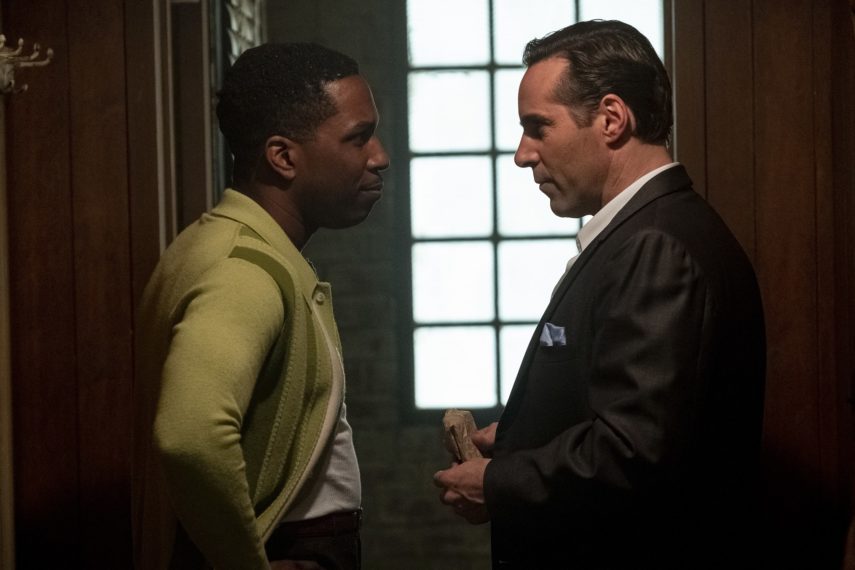
(Credit: Warner Bros. Entertainment Inc.)
Tony trusts Dickie’s counsel above all others, which is fascinating considering Dickie rarely came up in The Sopranos.
“David Chase told me I shouldn’t pay attention to anything anyone in the series said about Dickie because…both Christopher and Tony were untrustworthy and often confused about the past,” Nivola says. “I had total freedom to invent him.”
Chase’s film now has to sustain rabid fans of the series (and there is a wistful big-screen nod to the Sopranos fade-out). Whether Many Saints is enjoyed as origin tale or mob drama, Chase (who cowrote with Lawrence Konner and produced) has created a bookend that resurrects a central message of Tony’s own story.
“Dickie has a vague longing to do something noble in his life,” Nivola suggests. “But in David Chase’s mind, your childhood experience determines your path. And there’s no way around it.”
The Many Saints of Newark, Movie Premiere, Friday, October 1, In Theaters and on HBO Max
This is an excerpt from TV Guide Magazine’s 2021 Fall’s Top Shows issue. For more inside scoop on the new fall TV season, pick up the issue, on newsstands Thursday, September 23.

